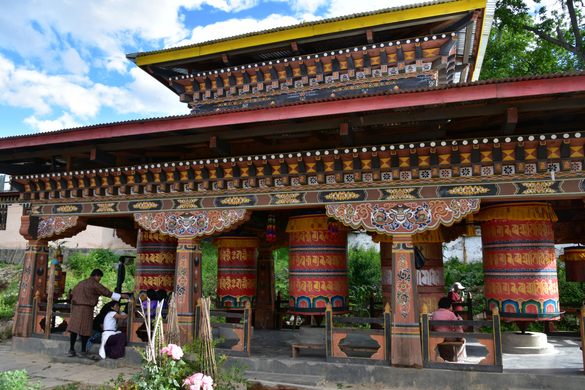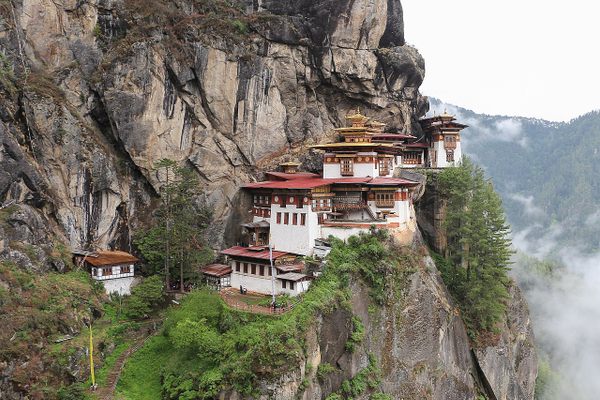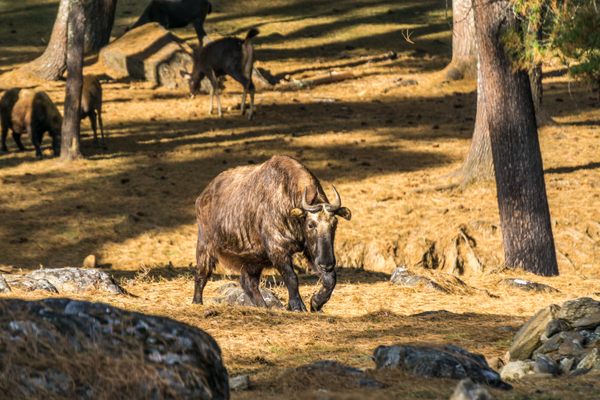Kyichu Lhakhang Temple
One of Bhutan's oldest temples was purportedly built to halt a giant female ogre from preventing the spread of Buddhism across Tibet.
Kyichu Lhakhang (also called Lho Kyerchu and Kyerchu) is a majestic seventh-century temple revered as one of the most magnificent sites of worship in Bhutan. Located in the town of Paro, some sources reference the temple as one of the oldest in the nation; others name it the oldest.
The original temple is said to have been built overnight on the left foot of a colossal ogress—otherwise referred to as a demoness—who intercepted the spread of Buddhism as she lay across the land. It’s thought to be one of over 100 temples established to overpower her so Buddhism could flourish far and wide.
Kyichu Lhakhang is believed to have been a smaller structure when the Tibetan King Songtsen Gampo erected this sacred building in the year 659, but a number of Buddhist saints and gurus added to the site until it became the spectacular temple it is today. Legend has it that the Second Buddha, Padmasambhava, was one of the important historical figures who paid pilgrimage to Kyichu Lhakhang in the eighth century, and that he hid treasure teachings around the temple.
The building underwent a round of renovations in the 1830s, and in 1968, the Royal Queen Mother Ashi Kezang Choden Wangchuck ordered its expansion in the way of Guru Lhakhang: a neighboring chapel that houses statues of Padmasambhava and Kurukulla, a female lotus deity, clutching a bow and an arrow made of flowers.
Beyond the exquisite gilded door to the main temple of Jowo Lhakhang is an original statue of Jowo Jamba (also Jowo Shakyamuni or Jowo Rinpoche) forged in the seventh century. His likeness constitutes the most sacred sculpture in the region, and the wooden planks on the floor in front of him manifest the wear and tear of centuries of worship at his feet. Nearby, a statue of Chenrezig, an all-knowing deity said to embody the compassion of all the Buddhas, bears 11 heads and 1,000 arms.
The cloisters that fortify the temple foster a contemplative space populated by fruit trees and prayer wheels, which monks spin quietly as they circulate the space. The inner courtyard conceals a mural portraying King Gesar of Ling, a warrior who is said to have conjured the longest poem in history.
Know Before You Go
Kyichu Lhakhang is a 10-minute drive from Paro proper. Visitors are welcome between 9 a.m. and noon, and 1 p.m. until 5 p.m.
















Follow us on Twitter to get the latest on the world's hidden wonders.
Like us on Facebook to get the latest on the world's hidden wonders.
Follow us on Twitter Like us on Facebook